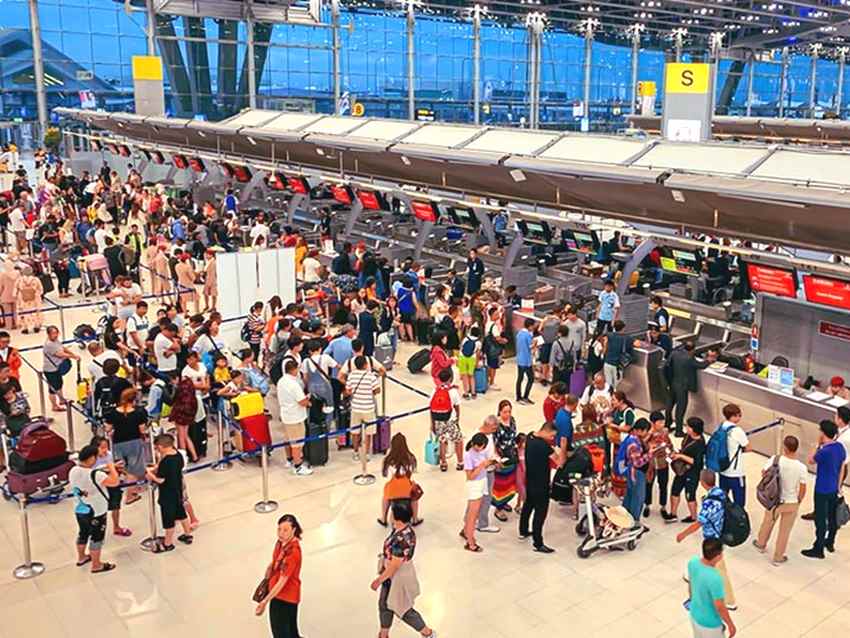
The interior minister has now signed off on the latest immigration rules which will permit citizens of 93 countries to obtain a visa-exempt 60 days on entering Thailand by land, air and sea. This includes all the countries which provide significant tourist numbers including the traditional markets of UK, mainland Europe, the USA and Australia. The formal introduction date is Monday July 15, but reports from newly arrived visitors suggest the doubling of 30 days to 60 is already in place.
In the past, visa-exempt tourists with 30 days stamped into their passports had to apply at local immigration to extend another month. They had to pay a visa fee of 1,900 baht and provide evidence that their hotel, condominium or host had registered them with immigration (the famous TM30 address confirmation form). Now that visa-exempt visitors have two months on arrival, they are spared that additional bureaucracy.
What is not clear is whether these tourists can extend their 60 days by visiting local immigration and obtaining a further 30 days: a total of 90 days. Another ambiguity is whether visa-exempt tourists do a border run to repeat the whole exercise once again. If so, tourists without any visa could be based in Thailand for longer than the 180 days in a calendar year required for tax residency purposes. That possibility raises all sorts of questions as a tourist becomes an expat.
The interior minister also confirmed the introduction of the multiple entry, five-year DTV or Destination Thailand Visa which will enable stays of 180 days plus one extension of six months more. However, this must be applied for at Thai consulates abroad and requires proof of being a digital nomad or remote worker or medical tourist or person wishing to enroll on a course such as martial arts or cookery. Presumably the documentation required will be published before September 1 which was the previously announced start date for this visa. There is also the possibility that 500,000 baht or equivalent must be maintained in a bank account.
The new rules for visas also suggest that work permit requirements are no longer required for some activities. The digital nomad with a DTV will be able to work without fear of being arrested provided he or she can prove they are working for foreign companies. In the past, this was a hazy area although arrests were very few. Visitors on the 60 days visa-exempt regulation will be able to do occasional work such as attending business meetings or organizing sports event as long as such activity is neither paid nor systematic.
So it's likely that the fine detail of the new regulations will take some time to settle down. That's also true of the new regulation which will allow foreign students an extra year's stay in Thailand after graduation. There have separately been strong suggestions that, from June 2025, all visitors to Thailand will need to fill an online form, known as an Entry Travel Authorization, several days in advance of travel. Such bureaucracies are becoming common worldwide to enable authorities to check you out and notify you of your desirability before you pack your suitcase.



Inga kommentarer:
Skicka en kommentar